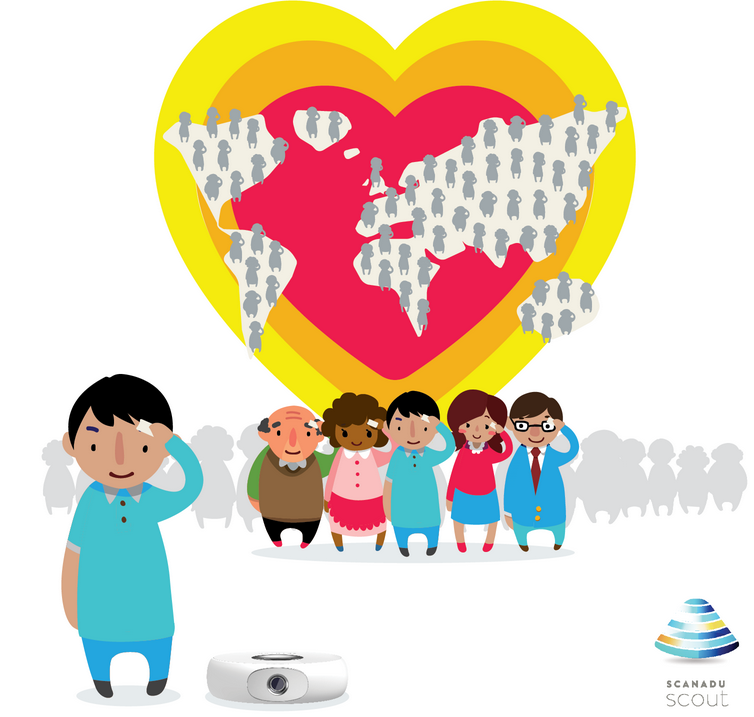
Researchers with the Scripps Translational Science Institute (STSI) have completed enrollment in the first clinical trial of the Scanadu Scout, a wireless health sensor that analyze, track, and trend your vital signs in few seconds. Enrollment in the clinical trail was recently closed after participation surpassed over 4,000 people. Participants were recruited from more than 5,000 backers of Scanadu’s record-breaking Indiegogo crowdfunding campaign that were the first consumers to receive the device earlier this year.
“As more wireless health sensors become available to consumers, it is critical that these technologies undergo independent, scientific testing to validate their effectiveness and value,” said Eric Topol, M.D., who directs STSI and serves as chief academic officer of Scripps Health. “This study fully reflects the institute’s mission of clinical validation of promising digital technology before it goes into mainstream medicine.”
Scanadu Scout Clinical Trail Overview
Before Scanadu Scout can be utilized by consumers, the device will need to obtain FDA clearance first. To achieve this, the Scripps clinical trial will track how often participants use the Scanadu Scout™ during a six- month evaluation period, how they perceive the device’s ease of use, and how it affects various health behaviors such as communication with physicians and medication adherence.
STSI is a National Institutes of Health sponsored consortium led by Scripps Health in collaboration with The Scripps Research Institute. Through this innovative partnership, Scripps is leading the effort to translate wireless and genetic medical technologies into high-quality, cost-effective treatments and diagnostics for patients.
During the Scanadu Scout™ study, participants will use the device to measure their heart rate, blood pressure, blood oxygen level and temperature. They have been instructed to use the device as much as they would like over the course of the study. Data is being collected through a smartphone app that works with the sensor and web-based surveys administered three times during the evaluation period.
“The goal of this study is to see how using an innovative vital sign monitor influences the emotions and decision-making process of device users,” said Steven Steinhubl, M.D in a statement., who is director of digital medicine at Scripps Health and oversees wireless technology studies at STSI. “It’s important to better understand these behaviors as more health information is collected by new devices like the Scanadu Scout.”
Data delivered in 10 seconds
The device, which is about the same size as the Star Trek tricorder, includes multiple electrodes and an infrared sensor that are touched when the device is held between the thumb and forefinger up to the temple. Blood pressure is measured without using an arm cuff, and blood oxygen level is determined without a finger clip. The sensor collects vital signs data in about 10 seconds then sends it to its smartphone app over a Bluetooth connection. Once in the app, the data can be viewed by the study participant and collected by researchers.
“Partnering with the Scripps Translational Science Institute for our clinical trial was a no brainer,” said Walter de Brouwer, CEO of Scanadu. “They’re one of the most reputable biomedical institutions and have been able to collect vital participant data to support Scanadu as we undergo our Food and Drug Administration submission process. We look forward to building on our partnership as we work to bring the Scanadu Scout to the masses.”
